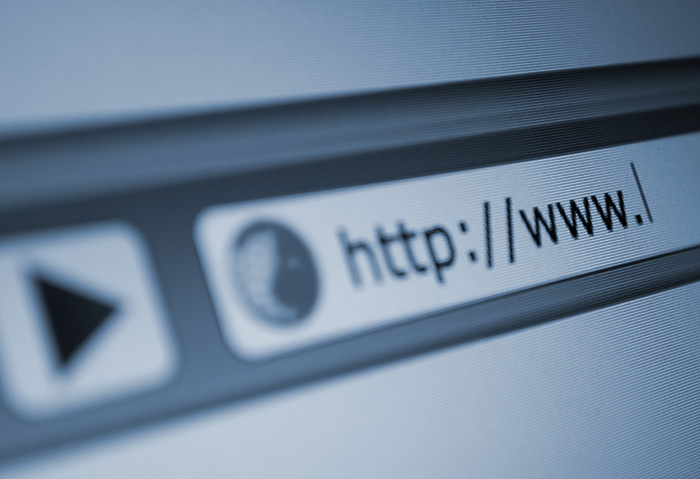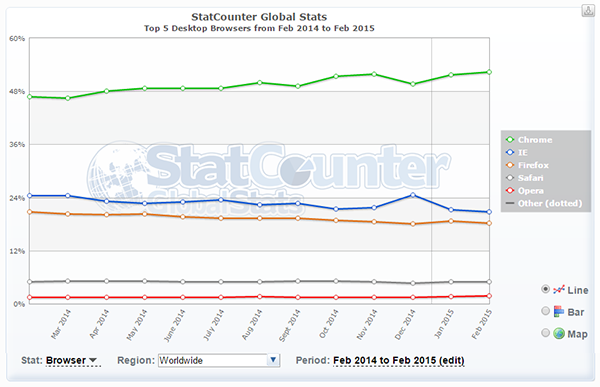Internet Explorer to get Rebranded, Should You Be Worried?
 As news of the imminent phaseout of the 20-year-old Internet Explorer browser piles up, those who are still using IE are buried in a muck of dire warnings they may not know how to address. Some dubbed this upcoming event as the “death of IE,” to add a bit of dramatic flair. A site was even set up to count the days until the latest version of IE is “gone forever.”
As news of the imminent phaseout of the 20-year-old Internet Explorer browser piles up, those who are still using IE are buried in a muck of dire warnings they may not know how to address. Some dubbed this upcoming event as the “death of IE,” to add a bit of dramatic flair. A site was even set up to count the days until the latest version of IE is “gone forever.”
Negative perceptions of Internet Explorer have persisted for years and are evident in the reactions of Internet users upon hearing the news. The hashtag RIP IE on Twitter turned up with a varied mix of reactions, with people either celebrating the 'death' of IE or wondering what took Microsoft so long.
While the next Windows release, Windows 10, may not be preloaded with IE anymore, it's not entirely going away. For one, the engine that will run Microsoft’s next generation browser care of Project Spartan is a fork of the Trident rendering engine that IE 11 uses. What is really happening here is not much of an outright termination as it is a rebranding of a well-known product.
Microsoft recognizes that some enterprises have legacy websites that use older technologies designed only for Internet Explorer, such as custom ActiveX controls and Browser Helper Objects. A spokesperson for Microsoft said, “We will continue to make Internet Explorer available with Windows 10 for enterprises and other customers who require legacy browser support.”
When support for IE finally ends, one of the main concerns for Web admins is patching vulnerabilities in unsupported versions. This is the same concern that shrouded users of Windows XP when Microsoft ended support in April last year. Because of this, users should consider using other browsers.
[Read: How to manage legacy operation systems]
Enterprise operations may be affected as well. Note that enterprise web apps that still rely on IE versions 8 or older will not work on Windows 10. As such, Microsoft recommends web admins with public websites that depends on legacy Internet Explorer behaviors, including document modes, to update to modern standards.
Why Products Rebrand
Companies rebrand all the time, and in the case of IE, it has been a long time coming. One of the reasons is to boost a brand’s popularity. For the past year, IE adoption has been lagging behind Google Chrome, as shown in the data below:

Global browser usage, February 2014 to February 2015 (source: StatCounter)
When asked if the company ever considered rebranding Internet Explorer to veer away from its declining reputation and improve adoption as early as August last year, Microsoft web developer Jonathan Sampson said , “Plenty of ideas get kicked around about how we can separate ourselves from negative perceptions that no longer reflect our product today.”
Like it? Add this infographic to your site:
1. Click on the box below. 2. Press Ctrl+A to select all. 3. Press Ctrl+C to copy. 4. Paste the code into your page (Ctrl+V).
Image will appear the same size as you see above.
Postagens recentes
- Unveiling AI Agent Vulnerabilities Part III: Data Exfiltration
- Unveiling AI Agent Vulnerabilities Part II: Code Execution
- Unveiling AI Agent Vulnerabilities Part I: Introduction to AI Agent Vulnerabilities
- The Ever-Evolving Threat of the Russian-Speaking Cybercriminal Underground
- From Registries to Private Networks: Threat Scenarios Putting Organizations in Jeopardy
 Cellular IoT Vulnerabilities: Another Door to Cellular Networks
Cellular IoT Vulnerabilities: Another Door to Cellular Networks AI in the Crosshairs: Understanding and Detecting Attacks on AWS AI Services with Trend Vision One™
AI in the Crosshairs: Understanding and Detecting Attacks on AWS AI Services with Trend Vision One™ Trend 2025 Cyber Risk Report
Trend 2025 Cyber Risk Report CES 2025: A Comprehensive Look at AI Digital Assistants and Their Security Risks
CES 2025: A Comprehensive Look at AI Digital Assistants and Their Security Risks